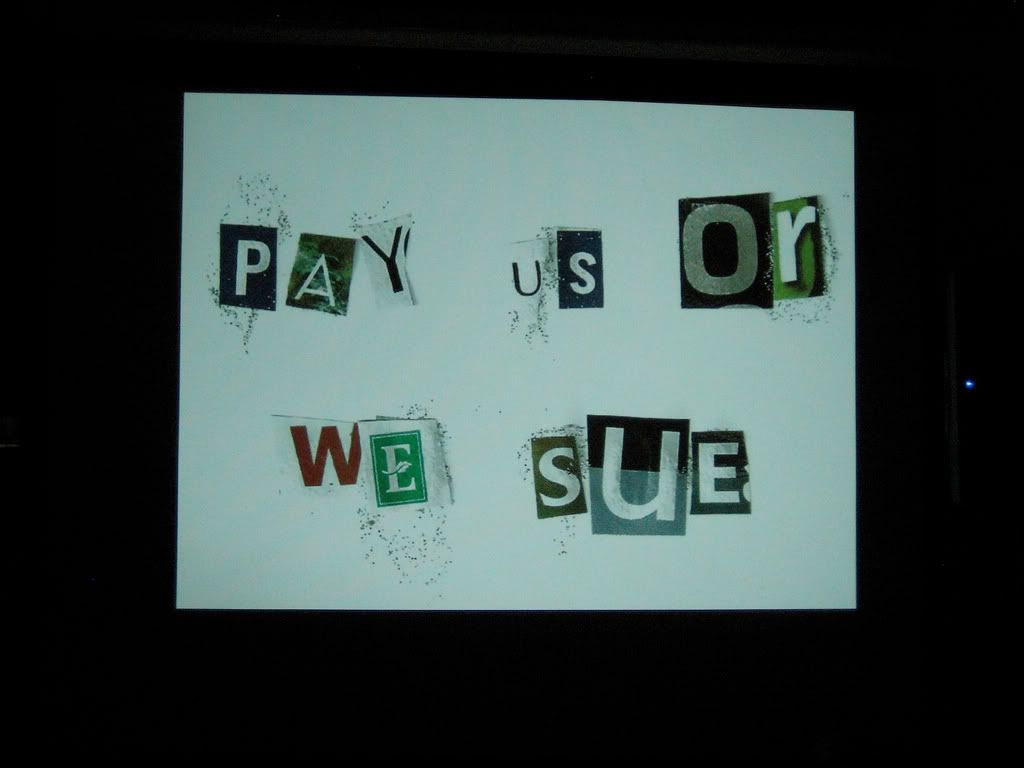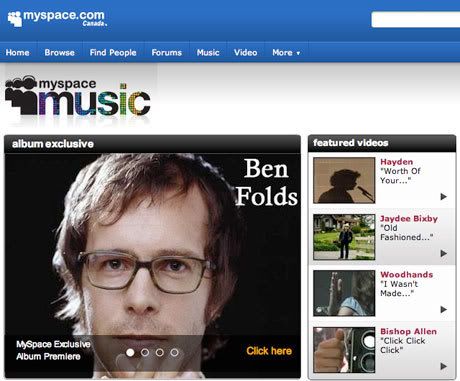 Just when it looked like Radiohead's street cred among the indie rock masses couldn't get any stronger, comes this morning's news that their new album is being self-released online in 10 days! Why it was only yesterday when it was revealed that the mysterious website RadioheadLP7.com, which launched on Wednesday and included a cryptic message that was thought to be a countdown, was actually a hoax perpetrated by an overzealous fan and had nothing to do with the band whatsoever (or so we were told). Furthermore, the band's management went on to say there was no fresh news concerning the latest as-yet-titled Radiohead album. Then, in a matter of hours, the band completely catches everyone off guard and announces not only does the album have a title (In Rainbows), but it is also being released for digital download exclusively on Radiohead.com in a scant 10 days.
Just when it looked like Radiohead's street cred among the indie rock masses couldn't get any stronger, comes this morning's news that their new album is being self-released online in 10 days! Why it was only yesterday when it was revealed that the mysterious website RadioheadLP7.com, which launched on Wednesday and included a cryptic message that was thought to be a countdown, was actually a hoax perpetrated by an overzealous fan and had nothing to do with the band whatsoever (or so we were told). Furthermore, the band's management went on to say there was no fresh news concerning the latest as-yet-titled Radiohead album. Then, in a matter of hours, the band completely catches everyone off guard and announces not only does the album have a title (In Rainbows), but it is also being released for digital download exclusively on Radiohead.com in a scant 10 days.
But that isn't even the good part. In order for the privilege of downloading the album (sans DRM, of course) directly from the band and without the need for a record label (their deal with Capitol expired months ago and currently they are "free agents") fans can pay WHATEVER THEY WANT for it. Yes, add the pre-order to your shopping cart and the price field is blank with a box for you to enter your own price. Essentially, Radiohead is leaking their new album in an official capacity and asking fans to make a donation for their troubles. I paid £4 ($8.15), but you can pay less or more if you'd like. And if you are an uber-fan then you can also pre-order a special "discbox" edition of In Rainbows, which comes complete with the 10-track album in CD, vinyl and digital formats, a bonus disc with eight additional tracks, photos and artwork, an additional vinyl with the bonus tracks plus a lyrics booklet for the low pre-order price of £40 ($81). The discbox package will be released on December 3rd, while a good 'ol fashioned CD version will be released sometime next year. Presumably, whenever Radiohead secures distribution and/or a record deal.
My guess is that swarms of fans will not only purchase the digital version of In Rainbows, but most will elect to pay a fair price for it, simply because the band has shown a tremendous amount of respect for their fans by giving them exactly what they have been clamoring for; music that is theirs to own to do whatever they want with. Conversely, Radiohead has shown a complete lack of respect for the major label apparatus that has slowly been killing the music industry. Instead of securing a record deal and national/international distribution, releasing a teaser single to commercial radio, and embarking on a contrived press tour, the band is actually punishing those people who choose to purchase the album in a conventional record store (ie. the instrument that feeds the RIAA beast) by giving it a release date that is much later than the digital version. Why go through a middle man and aide the major record labels' greed when you can buy the album at a fair price directly from the people who poured their efforts into creating it in the first place? If you truly support musicians then you will give the RIAA the finger and head over to Radiohead.com to purchase the album now.
>>>Continue reading "Radiohead to RIAA: F@#K YOU!"
 [photo courtesy of Flickr user Toshi Hoo]
[photo courtesy of Flickr user Toshi Hoo]





